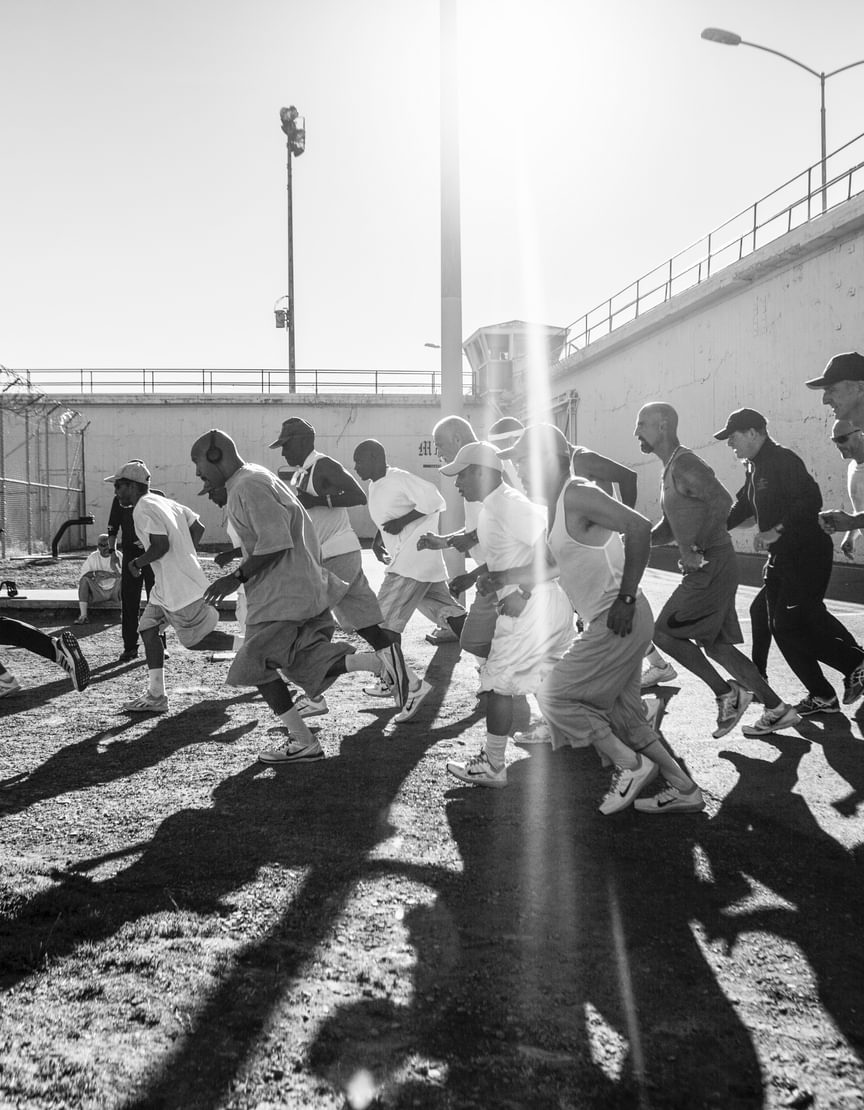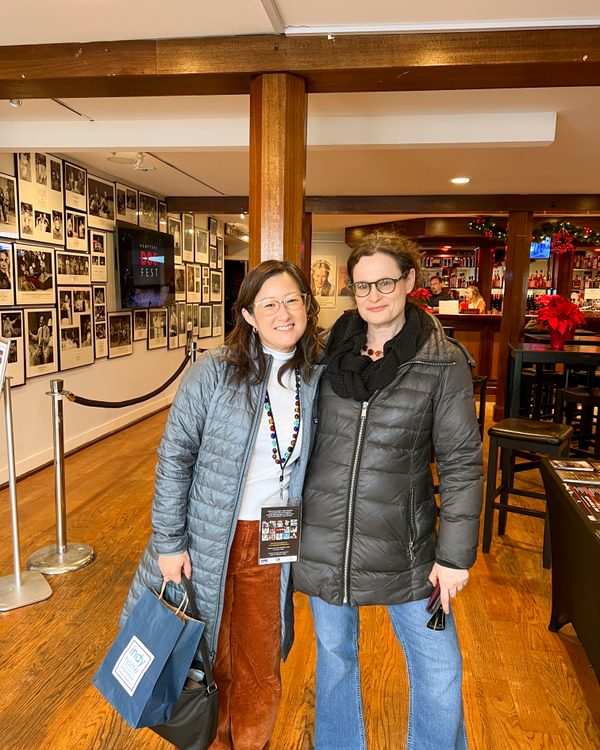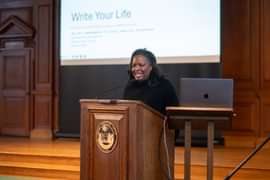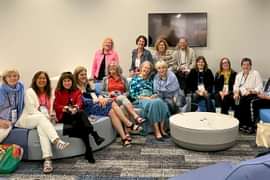
May 21, 2024
Let’s Discuss: Making a Documentary at San Quentin
Filmmakers Christine Yoo ’86 and Hella Winston ’86 take viewers behind the scenes of a unique marathonby Allyson Irish
Friends since the age of 14, Christine Yoo ’86 and Hella Winston ’86 recently collaborated on the documentary 26.2 to Life, which follows a group of incarcerated men at San Quentin Rehabilitation Center who join the 1000 Mile Club and eventually complete a full marathon within the prison yard. The critically acclaimed film was the first documentary that Yoo has written and produced; Winston, an investigative journalist, provided critical research skills as a producer. Here, the women speak with Andover magazine about making the film together.
How did you come to work together on this project?
HW: Chris made a feature film called Wedding Palace and she was screening it in New York, where I live. We ended up spending a lot of time together and just kind of reignited our friendship. A few years after that, I happened to be in LA. We ended up going to lunch, and Chris said, “I just learned about this story, and I want to make a film. Would you want to be involved in some way because you’ve done work in criminal justice?” And that was the genesis of the whole collaboration.
CY: I think Hella was the first person I talked to because of her criminal justice reporting and investigative reporting background. Up until that point, I really had done only one nonfiction piece, which was very different. So I didn't have any investigative research type of background.
What was it about the San Quentin marathon and the 1000 Mile Club that intrigued you?
HW: San Quentin is in the Bay Area, and there are a lot of programs there that local people know about. But I don’t think this program had gotten much attention outside of the Bay Area. Chris was the first person to really want to look at this running program. She had a vision about why this was such an important activity in the prison, beyond just exercise.
 Friends since high school, Christine Yoo '86, left, and Hella Winston '86 collaborated for the first time on this documentary film. (Courtesy photo)
Friends since high school, Christine Yoo '86, left, and Hella Winston '86 collaborated for the first time on this documentary film. (Courtesy photo)
CY: I think running is probably one of the most cinematic activities one can do. The 1000 Mile Club offered a window into something more expressive—a more cinematic approach to the experience that I had not seen before.
Was there anything about this film experience that surprised you or changed previously held assumptions?
CY: Originally, I went into this wanting to do a regular motion picture, a regular narrative film. And from the very first time I stepped into the prison, my notions about prison were completely turned upside down, or at least in relation to what San Quentin is. I also had my preconceptions about the prison system and people who are in it. What I learned along the way—what we all learned—is that it ain’t what you think it's going to be at all.
The alumni and volunteers of this running club have a valuable lesson to teach us about shared humanity and how everyday people can really engage in something so complex and seemingly unchangeable as the prison system. It was a very empowering message for each of us who worked on the film.
HW: We had people on the film crew and the running volunteers who came from all different points of view. What was interesting to me was this idea that if you come together to share a passion, like running, some of that other stuff falls away, opening people up to thinking about things maybe not in such a binary or politicized way. It was interesting to see that through focusing on what people have in common, some of these political divisions kind of fade into the background.
Watch the documentary and get more information here.
(Top photo courtesy ESPN)
Other Stories

Best-selling author Rachel Howzell Hall delivers MLK Day keynote




